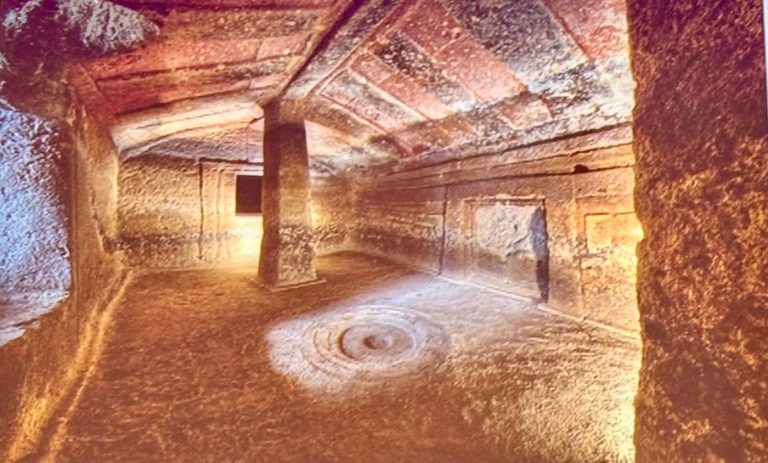Exports account for 32% of the Italian Gross Domestic Product. There is an urgent need to resume contacts, present products, services and data. Because “being in a market” also means being there personally, knowing it and guarding it. We are in the new era of remote presence: a virtual space opened by Covid-19 that imposes social distancing on us, and halts travel and international fairs. And 16 thousand Italian exporting companies are starting to (re)conquer their markets in the world via webinars, with online seminars and teleconferences. They are led and coordinated by the Ministry of Foreign Affairs and by the ICE, the Italian Trade Agency, that have launched a massive strategy for connecting via video conferencing and digital platforms since April.
The opportunities
“We are applying the lessons imposed by the emergency,” says Manlio Di Stefano, Undersecretary of State for Foreign Affairs with a portfolio on the internationalisation of the country system. The funds are in place, € 500 million to help the recovery of exports, but contacts must be concretely established in order to use them. First move: “To indicate the opportunities of individual markets to entrepreneurs. For this reason, we have activated webinars with our embassies and ICE offices in 17 strategic countries. Over 16 thousand companies have registered and approximately 10 thousand participated in the first 13 teleconferences”, explains Di Stefano. When the last four meetings will be held, the number of participants will rise to 20 thousand. The first phase was of vertical information: aimed at every single country, from the United States to Brazil, from China to Japan, India, and Europe. In the second phase, always via webinar, the experts of the Ministry of Foreign Affairs and of ICE “will work on the horizontal level: we will focus on ecommerce, customs systems, non-tariff barriers to trade, intellectual property, financing in the individual areas of geographical interest”. Risk of information dispersion? Di Stefano says to L’Economia: “We will avoid it with a single portal containing a database equipped with artificial intelligence, capable of providing real-time strategic news that is clear and targeted to different situations”. “We have an economic arsenal and another made of new digital platforms”, says the undersecretary and anticipates that “in June an international communication campaign for ‘National rebranding’ will start, in order to dispel the halo of fear created by the epidemic regarding our country and ‘made in Italy’ products. We have € 50 million at our disposal and great designers, and creative people who have volunteered to re-introduce us to the world are also with us. This is a great moment of national unity as well, with a group of world-class Italians who are preparing a campaign, from newspapers to video games. We will also offer safe tourism”. There are also Ferrari men on the creative team.
The agreements
It’s not theory. During the last few days, the agreement through which China Faw group will invest 1 billion Euro in the Emilia Romagna Motor Valley, was finalised in the course of a video link between Beijing and Rome. Our technicians will develop electric and plug-in, high-end and sports cars. The 1 billion Euro of the investment will create 1 thousand Italian jobs. The green supercars that will be designed in this region will be destined for the American, European and Chinese markets. Beijing is very fond of ceremonies, red carpets, crowded halls of traveling delegations. This time Lei Ping, vice-president of Faw, the first state-owned vehicle manufacturer able to reach a total annual production volume of 4 million units, was thrilled to address the Silk EV partners in telepresence. The Italian embassy headed by Luca Ferrari has meaningfully tagged the agreement with the hashtag #TheRoadtoRecovery).
It was October 2018 when the new Telepresence service was inaugurated in our diplomatic mission in Beijing”. A pioneering project supported by Assolombarda, with Cisco technology and secure communication, to allow our companies to get in touch with potential Chinese customers, suppliers and shareholders. At the time Assolombarda was directed by Carlo Bonomi, now president of Confindustria; Ettore Sequi, today Chief of Staff of The Italian Foreign Minister Luigi Di Maio at the Farnesina, was ambassador. Carlo Ferro, president of the ICE Agency, stresses “the gratuity of export start-up services for companies with up to 100 employees; the financing of the participation in collective missions in foreign fairs for the next 18 months, the aim of bringing the participation of Italian companies on 25 ecommerce windows”. Our companies “have so far relied on only three ecommerce platforms, Alibaba, Amazon and Rakuten – adds Di Stefano -; broadening the offer to 25 aims to create a new digital normality, a great platform for logistics and payments. We have involved Poste Italiane for online payment”. But will small and medium-sized enterprises be able to move around in these new technological spaces? “The heart of the revolution is training, we provide Digital Export Managers, subsidised by the State, for six months, at the rate of 50%; we’ve asked our universities to start courses for young experts who will be employed by the companies”, assures the undersecretary. The office of Promotion of the country System of the Ministry of Foreign Affairs, directed by Ambassador Lorenzo Angeloni, submitted a questionnaire at the end of each webinar: “98% of the 16,493 participants evaluated the usefulness of the information obtained with a score of 4.1 out of 5”. Ambassador Sequi recalls Jean Monnet’s aphorism: “People only accept change when they are faced with necessity, and only recognize necessity when a crisis is upon them.”





